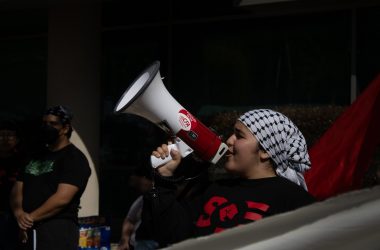Winning the bid for the 2016 Olympic Games recently became Rio de Janeiro’s biggest source of pride.
Last week, that pride turned into desperation as violence erupted in the city, which sent officials on a mission to improve security measures in an effort to show that Rio is indeed safe enough to host the Games.
As police attempted to move in on gang members disrupting yet another neighborhood, the gangs opened fire on a police helicopter, causing it to explode and crumble to the ground. This happened just a mile from Maracana Stadium where the Olympics are scheduled.
The violence has not only shocked the world, but has also revealed the dangers of Rio’s neighborhoods. As a result, many residents worry the Olympics will be taken away from Brazil.
To prevent this from happening, Brazil’s President Luiz Inacio Lula da Silva and Olympics organizers promised to curb the violence by infusing money to improve its police forces by 2012.
While it’s great that da Silva wants to improve security so Rio is deemed safe enough to host the Olympics, it is disturbing that they only want improvements for this particular event.
The city is infested with drug traffickers, and violence has made the city extremely dangerous.
Last year, there were 4,631 homicides in its metropolitan areas. That alone should have warranted drastic changes.
This unbelievable homicide rate makes you wonder if Rio’s police have made any efforts to combat the drug violence. Evidently, they haven’t. They have been dragging their feet, sluggishly enforcing laws in drug-infested neighborhoods.
Instead, they try to contain the violence by guarding the entrances to these violent areas; only moving in for select operations. This has allowed the traffickers to gain complete control.
Had the police been more consistent over the years at enforcing the laws, Rio’s government would not be pressured to spend extra money to clean up their capitol city.
Some wonder if spending extra money on cleaning up the area will benefit Rio in the long run. What will happen once the Olympics are over? Will da Silva, being satisfied Brazil was able to host the Games, discontinue the influx of government money? Will Rio go back to being the deadly city it is today?
The fact that we have to ask some of these questions shows that Rio’s government doesn’t have its residents’ best interest at heart.
Instead of da Silva being so concerned about saving the Olympics, he needs to be more concerned about saving the people in Rio’s neighborhoods.
Lala Thompson is a sophomore interpersonal communication major and a contributing writer for the Daily 49er.



